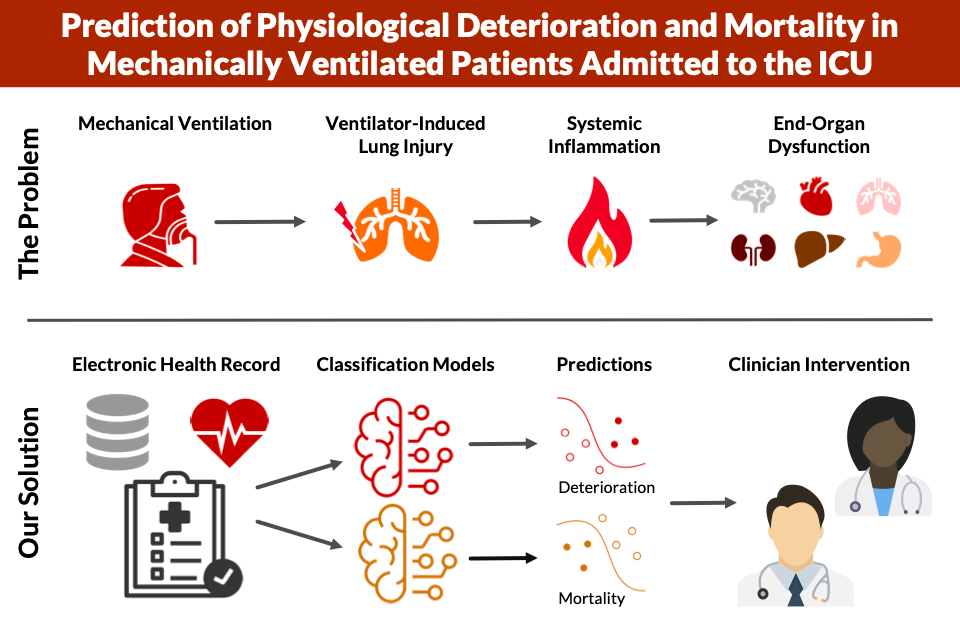Prediction of Physiological Deterioration and Mortality in Mechanically Ventilated Patients Admitted to the ICU
Team: Precision Care Medicine: Coquelicot
- Program: Biomedical Engineering
- Course:
Project Description:
This project aims to developing models for predicting ventilator-associated organ dysfunction and mortality for improved care of ventilated patients.
Project Photo:
Although mechanical ventilation is a life-saving intervention that can maintain oxygenation in a critically ill patient, it can also lead to systemic inflammation and multi-organ dysfunction. The goal of our project is to build classification models using available features from patient electronic health records to predict physiological deterioration/organ dysfunction and mortality. This will ultimately aid in early detection and intervention for high risk patients in the ICU.
Project Poster
Open full size poster in new tab (PDF)
Project Post Summary:
Ventilator-induced organ damage has been associated with the delivery of high tidal volumes and, more recently, with the delivery of high mechanical power (MP) by the ventilator, which describes the energy transferred from the ventilator to the lung tissue per unit time. This study aims to build machine learning models that leverage knowledge of ventilator settings and other patient features to predict physiological deterioration and mortality in mechanically ventilated patients. To this end, patient data from the Phillips eICU Database were used to build predictive models. Inclusion criteria include age ≥18 years, ICU stay duration ≥48 hours, volume- or pressure-controlled mechanical ventilation, and ventilation duration ≥48 hours. Physiological deterioration was defined as any increase in the daily Sequential Organ Failure Assessment (SOFA) score between days 3–7 from initiation of mechanical ventilation. Classification models including logistic regression, random forest, and support-vector machines were evaluated for predicting mortality and physiological deterioration using area under the receiver operating characteristic curve (AUC). Using these models, we show predictive power for mortality (AUC: 0.78) and for overall physiological deterioration using total SOFA scores (AUC: 0.74). We have also shown predictive power for organ-specific deterioration, specifically for renal (AUC: 0.74) and pulmonary systems (0.79), using their respective SOFA subscores as outcome measurements. Inclusion of time-series physiological data may further improve the performance of these models.
Student Team Members
- Andy S. Ding
- Madi Kusmanov
- Morgan Sanchez
- Yunru Chen
- Shreyash Sonthalia
- Timothy Bedard
Project Mentors, Sponsors, and Partners
- Pedro Mendez-Tellez, MD
- Kirby Gong
- Indranuj Gangan
- Raimond L Winslow, PhD
- Joseph L Greenstein, PhD



